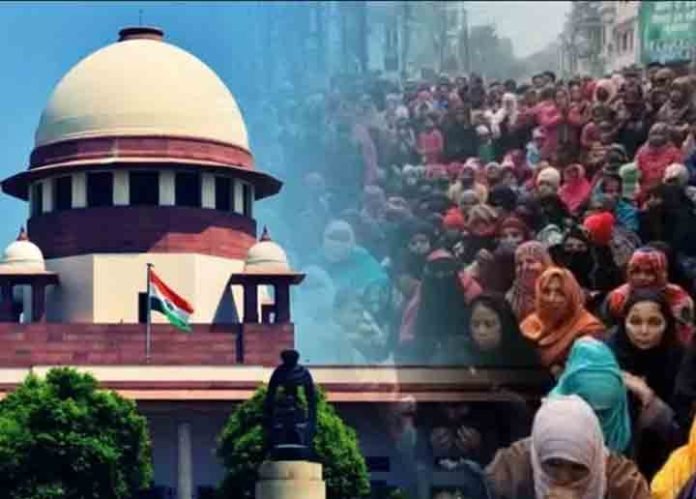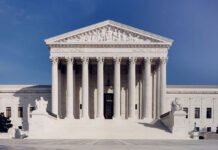On January 22, 2025, the Supreme Court of India reinforced its stay on the Allahabad High Court’s directive that permitted a court-monitored survey of the Shahi Eidgah Mosque complex. The complex, which is located adjacent to the Krishna Janmabhoomi Temple in Mathura, has long been a focal point of a significant legal dispute between Hindu and Muslim communities.
A Supreme Court bench, headed by Chief Justice Sanjiv Khanna and comprising Justice Sanjay Kumar and Justice K.V. Viswanathan, deferred the hearing on the mosque management committee’s petition. The petition challenges the survey order and has now been scheduled for consideration in the first week of April 2025.
Allahabad High Court’s Controversial Survey Order
In December 2023, the Allahabad High Court issued a landmark order allowing a court-supervised survey of the Shahi Eidgah Mosque complex. This order came in response to claims made by Hindu plaintiffs who argued that the mosque was constructed on the site of an ancient Hindu temple, allegedly marking the birthplace of Lord Krishna.
The High Court also approved the appointment of a Court Commissioner to oversee the survey, asserting that the examination of the mosque’s structure and premises was necessary to verify the religious and historical significance of the site.
However, this directive faced strong opposition from the Shahi Masjid Eidgah Management Committee, which argued that the order contravened the Places of Worship (Special Provisions) Act, 1991. This law protects the religious character of any place of worship as it existed on August 15, 1947, barring changes or legal disputes over its status.
Supreme Court’s Position on the Matter
In its interim order, the Supreme Court noted that three pivotal issues remain pending before it:
- Appeals Against Consolidation of Lawsuits: Hindu plaintiffs have opposed the merging of multiple lawsuits regarding the Krishna Janmabhoomi and Shahi Eidgah Mosque dispute.
- Validity of the Places of Worship Act, 1991: The Act has been challenged in this context, as it restricts alterations to the religious character of worship sites.
- Legality of the Survey Order: The apex court aims to determine whether the High Court’s directive for a survey aligns with constitutional and legal frameworks.
While deferring the hearing, the bench reiterated that the status quo would remain unchanged until further deliberations. This ensures no immediate implementation of the Allahabad High Court’s order.
Hindu Claimants Assert Evidence of a Temple
Hindu petitioners have long argued that the Shahi Eidgah Mosque stands on the remains of a Hindu temple, constructed to mark the birthplace of Lord Krishna. According to them, the mosque’s architectural features and historical records point to the demolition of a temple during the Mughal period.
Advocate Vishnu Shankar Jain, representing the Hindu side, has stated that the survey is crucial to uncover and verify evidence supporting these claims. He emphasized that certain artifacts and structures within the mosque could corroborate the historical existence of the temple.
Jain also noted that the High Court’s decision superseded earlier orders, rendering previous appeals against the survey moot.
Muslim Side Raises Concerns Over the Survey
The Shahi Masjid Eidgah Management Committee and other Muslim stakeholders have raised objections to the proposed survey, citing:
- Violation of the Places of Worship Act: They argue that the 1991 Act protects the mosque’s status and prohibits any alteration of its religious character.
- Potential Communal Tensions: The survey order, they claim, risks inflaming communal sensitivities and disrupting harmony in the region.
- Lack of Merit: The committee maintains that there is no substantial evidence to justify a survey or question the mosque’s standing as a place of worship.
Their petition to the Supreme Court reflects concerns over the broader implications of reopening historical disputes.
Historical Context of the Dispute
The Krishna Janmabhoomi and Shahi Eidgah Mosque controversy dates back several decades. Hindu groups have consistently asserted that the mosque was built after the demolition of a temple during Mughal emperor Aurangzeb’s reign. This claim has led to multiple legal battles seeking ownership of the land and recognition of the temple’s historical presence.
The dispute gained momentum following the Ayodhya Ram Janmabhoomi verdict in 2019, which saw the Supreme Court allocate the disputed site to Hindu claimants. Many view the Mathura case as part of a broader pattern of reclaiming significant religious sites.















